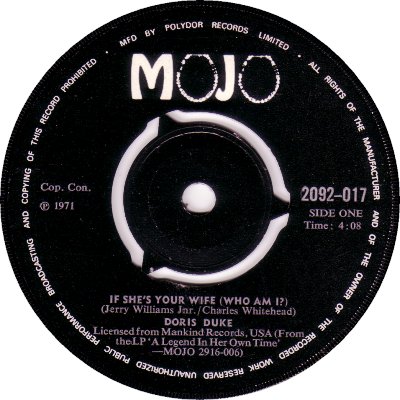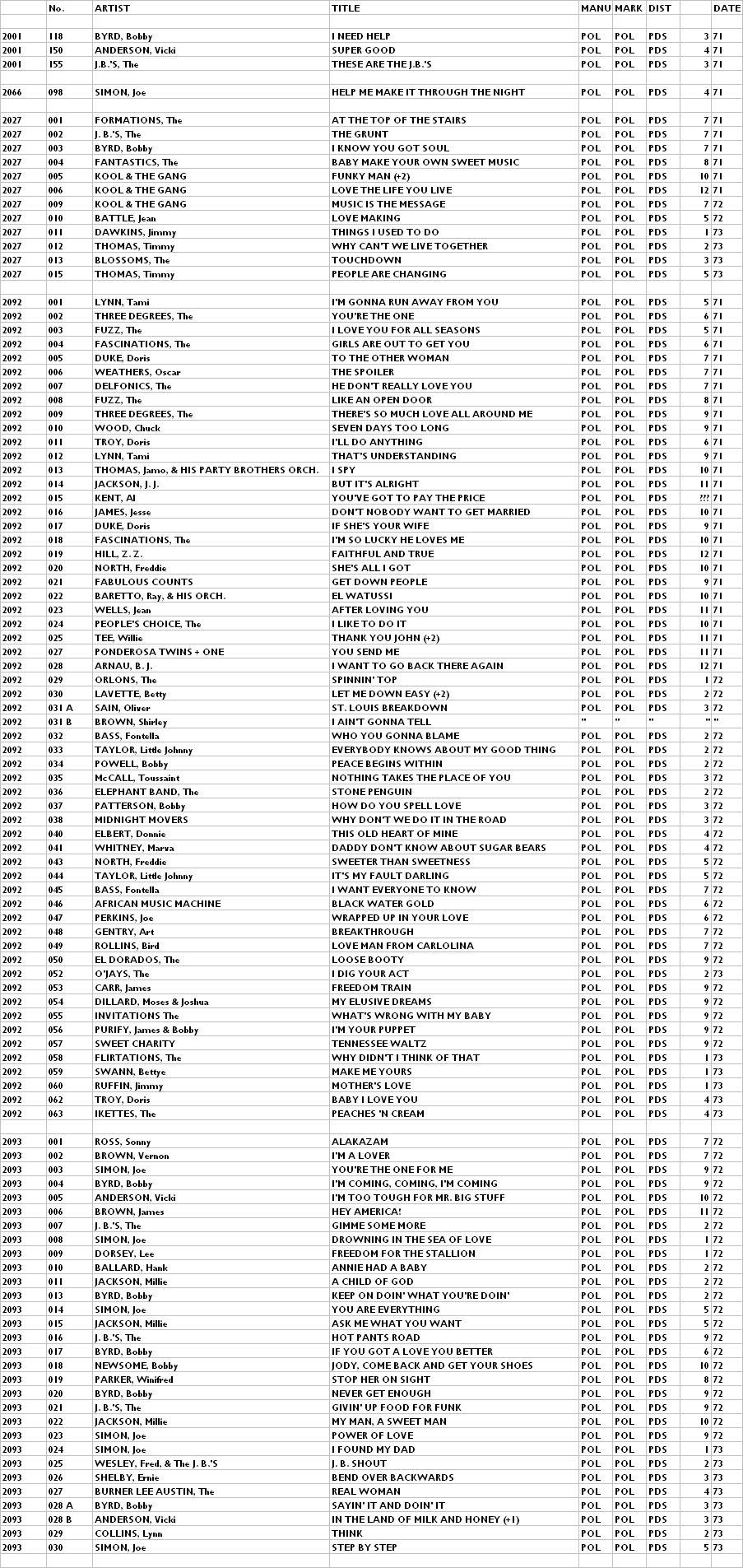



Mojo was the Soul Music subsidiary of Polydor Records, 'The first new Polydor label to be established in this country' according to 'Record & Tape Retailer' of the 6th of February 1971. The article added that John Abbey and Bob Kilbourn of the Contempo International company had been appointed to source product for Mojo; it was a role that Contempo was also to perform for Atlantic and Stax. 'RR' of the 27th of February revealed that deals had been done which would allow the new label to add material from U.S. concerns Roker, Canyon, Soul Clock and RRG to its initial resource of the King and Spring catalogues; it could also put out some early Atlantic sides, thanks to a sub-licensing agreement. The issue of the 20th of March reported that Mojo, which it described as "a 'Blues' label formed by Contempo, publishers of the 'Blues and Soul' magazine" had formed its own publishing company to go with the label. Subsequent issues revealed Mojo's net spreading, as licensing deals were done with various American companies: De-Lite and Red Lite on a three-year deal ('RR', 31st June); Jewel and Paula ('RR' 21st August); and Strong and All Platinum immediately, with Gamble and the Duke-Peacock group to follow in the New Year ('RR', 23rd October).
'RR' of the 8th of January 1972 was able to report that Mojo had achieved 500,000 sales during its first eight months, perhaps in part due to 'I'm Gonna Run Away From You' by Tammi Lynn (2092-001) reaching the No.4 spot in the Singles Charts. It was described in that article as a 'Blues and Soul' label, the 'brainchild' of John Abbey, who acted as 'consultant' for it; again, Polydor were named as the sole owners, with Contempo being responsible for acquiring product and deciding on releases. Some nine months later, however, Mojo's connection with Contempo was broken. According to 'Music Week' (Record & Tape Retailer's successor) of the 30th of September, a disagreement about the long-term direction of the label had led to the split, and Mojo was now under the supervision of Polydor's Pop Product manager Malcolm Jones. Contempo went on to introduce its own label in January of the following year (q.v.), and managed to get 'I'm Gonna Run Away From You' back into the Charts when it reissued it in 1975. Perhaps understandably the impetus behing Mojo seems to have died out after Contempo's departure, and the label issued its final single some eight months or so later. During the course of its existence it issued a mixture of oldies, currently popular American material and original recordings; it enjoyed minor hits by the likes of Millie Jackson, The Formations and The Fascinations, while Joe Simon and Timmy Thomas got singles into the Top Twenty. In an article from 'MW' of the 21st of September 1974 Abbey referred to Mojo as being 'the first label devoted to making Soul music commercially accepted'.
Mojo kept to one label design throughout the company's existence. Its singles started off with paper labels in the usual Phonodisc forms: either with large spindle holes and plastic 'spiders' (1), or with three dinking perforations (2) if there were any. When its parent company moved to injection-moulded labels Mojo did too (3); the final two Mojo singles, 2027-015 and 2093-020, both from May 1973, were issued only in that form, while some popular earlier singles can be found as injection moulded re-pressings. As was usual for Polydor singles at the time, there were no promo labels; in some cases stickers were used to indicate promo copies. The first few Mojo singles had catalogue numbers taken from two of the main Polydor label's numerical series, the 2001-000 and 2066-000 ones; subsequent issues were divided into three series, 2027-000, 2092-000 and 2093-000, all of which ran at the same time, though the 2093 series was a late arrival. The different prefixes appear to have indicated which companies the material had been sourced from: the 2027s were from MGM, King, De-Lite, Red Lite, Excello and Glades; the 2093s were from Event, Spring, Brownstone, King, People and Polydor; while everything else seems to have gone onto the 2092s. Thanks to Bob Mayhead for filling-in several gaps in the discography below.



Copyright 2006 Robert Lyons.

